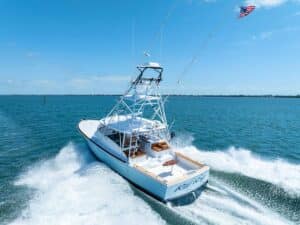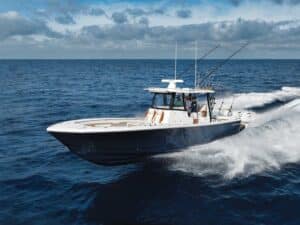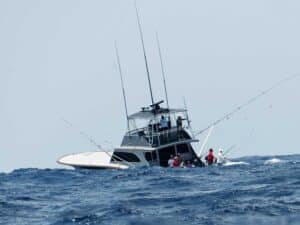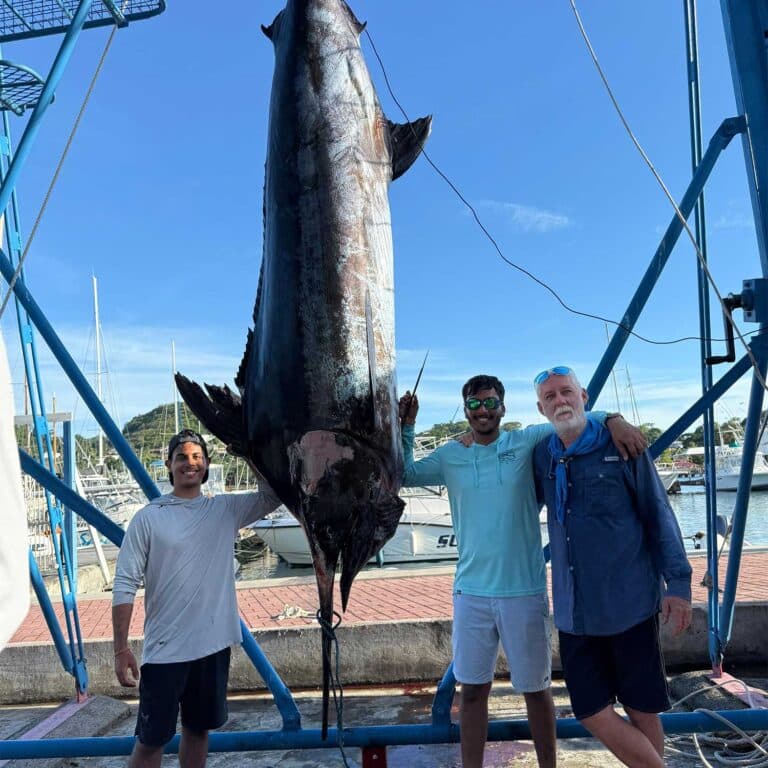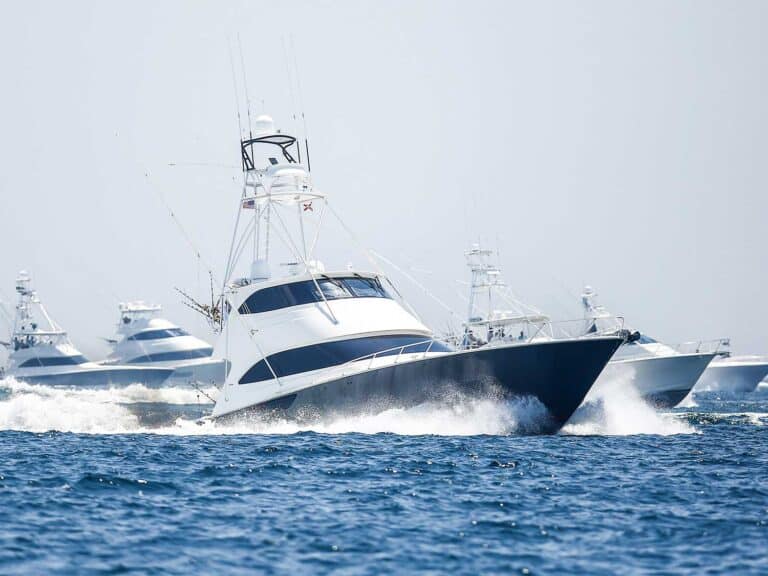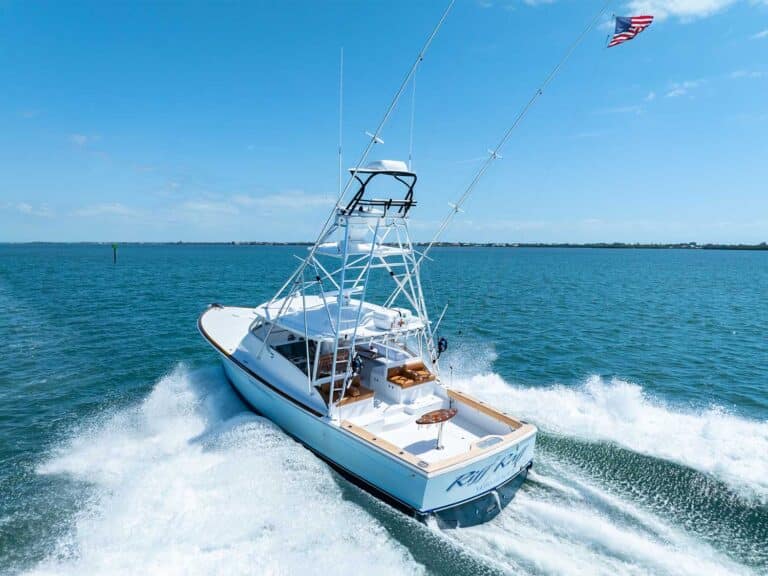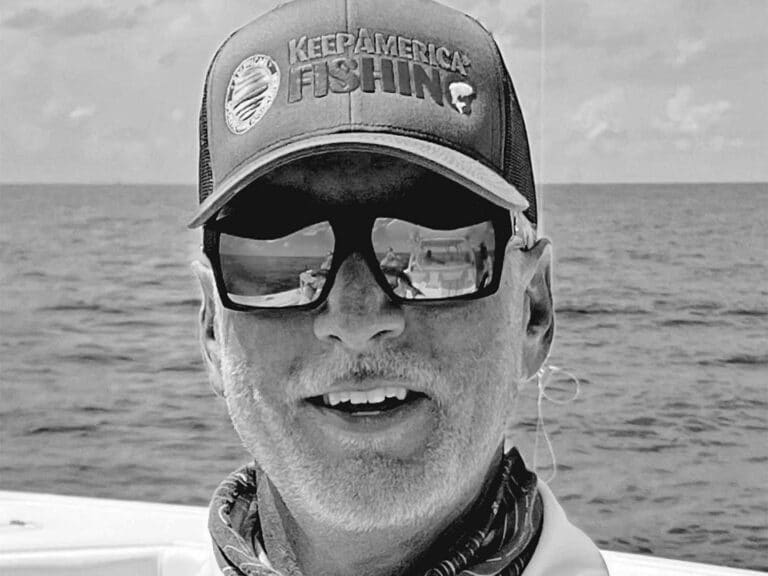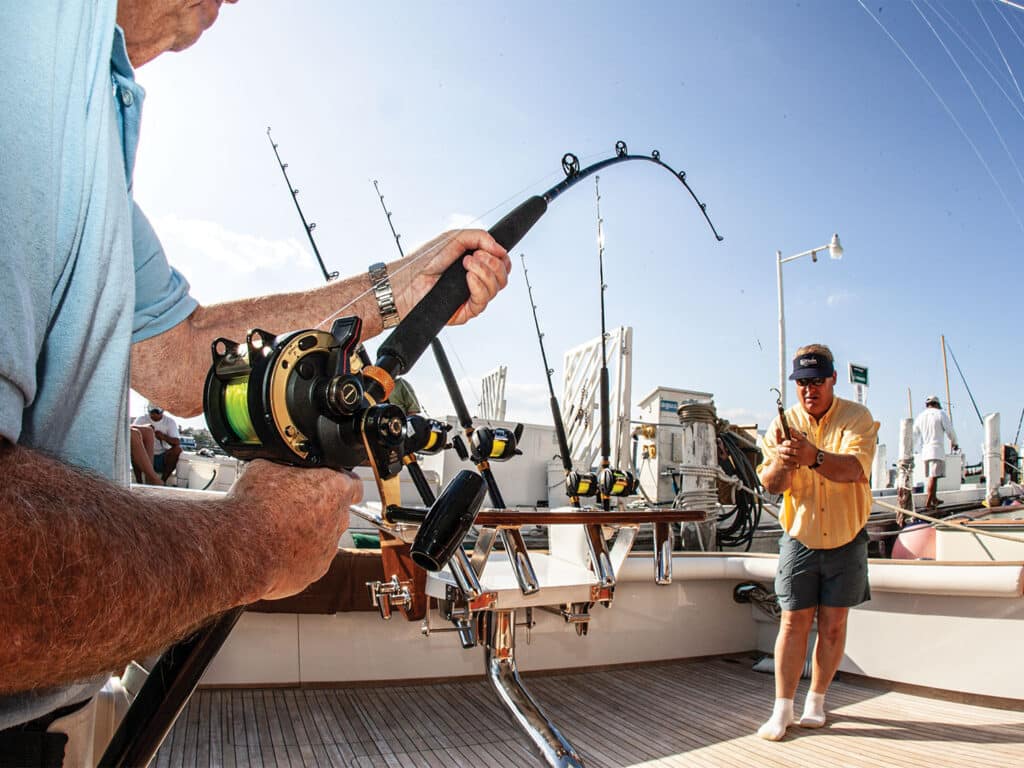
Editor’s Note: We mourn the loss of Capt. Pete Zabinski Jr.—a good friend, a talented fisherman, and an enthusiastic teacher beyond compare. To top off his career, he wanted to be a published author in Marlin. This article was approved for print a mere 18 days before his untimely death in February 2023, and we are more than happy to make one of his final wishes come true. Rest easy, Big Pete. The sport-fishing community will miss you. —Capt. Jen Copeland, Senior Editor
Where have the old-school captains and mates gone? It seems that as they retire, pass on, or change industries, they take the camaraderie, traditions, and intimate fishing knowledge with them—unfortunately for the rest of us.
That once-in-a-lifetime opportunity to work as a sport-fishing professional was never taken for granted back in the day; it was earned. Once you were hired, you were put to work in the bilge, engine room and lazarette, so you had a good understanding of all the systems that made the boat seaworthy. After that, you got introduced to the safety equipment, the tackle, and how the captain and owner preferred their operation to run. All of this training was necessary before you spent a single day on deck. It’s called paying your dues, and every effort possible was made by the crew to maintain the vessel to the highest level of greatness.
Can’t We Call Someone to Fix That?
Unfortunately, the answer in way too many situations has become yes—the go-to for even the simplest of problems. This stems from a lack of firsthand education and being prepared to get your hands—and those fancy surf shorts—dirty. Swapping out a bilge pump, replacing a head or doing an oil change, and generally being there to assist the captain, was expected, and “you’d better be listening with your eyes and your ears” was repeated by countless old-school captains.
When something broke down underway, the crew was expected to fix the problem and get the boat up and running again. The smaller problems could be easily solved, while only the more severe ones would lead you to the nearest marina for more troubleshooting. If you were out of the country and needed parts, chances are that somebody on the dock had a spare—which you would happily replace the first chance you got. And the same was expected of you if someone needed something you had. The old Bahamians would say, “Hand give, hand go”; in other words, one good turn deserves another.
The thought of a diesel engine being controlled by multiple computer chips and sensors was the furthest thing from a sport-fishing crew’s mind 40 years ago. We used to say that if a Detroit motor wasn’t leaking oil, it wasn’t working. Those old mechanical engines were able to be rebuilt multiple times over by the captains, and maybe one mechanic to help with the heavy lifting. If a friend was having engine troubles, someone could help to get them back up and running, no matter how many times you had to sprint up and down the dock gathering parts. We made it happen and helped out where we could, even if that meant making dinner for the crew whose boat was having problems. Everyone stepped up, and no one said boo about it.
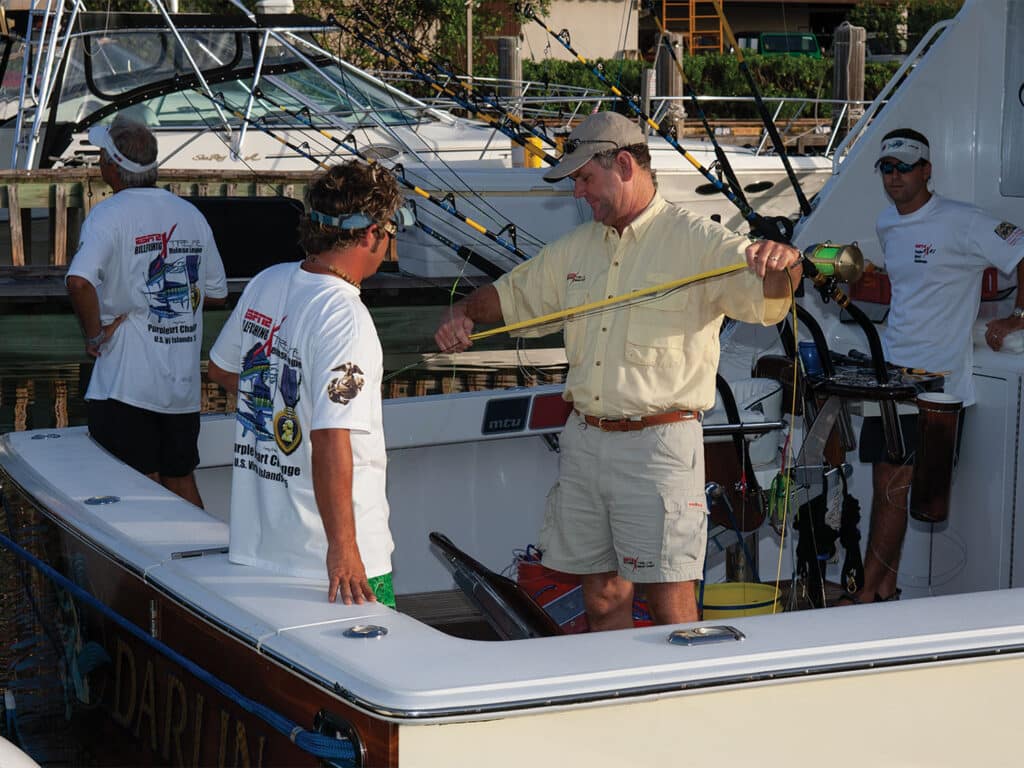
Can’t We Just Drop it Off?
When the old-school mate prepared for the season, he inventoried the tackle and prepared for the target species. The fall and winter months were focused on certain fisheries, and the spring and summer on others. The old-school crews were able to fix rods and reels, build hook-sets and wind-ons, make a ridiculous amount of leaders for light-tackle fishing, and were confident in everything they did. They possessed the knowledge of how much mono and how much backing, as well as when it all needed to be changed out.
The connection point between the mono and backing was—and still is—important. An old-school mate would splice 6 feet of mono inside the backing and then whip it with wax line at the joint. The top shot of monofilament is generally a quarter of the spool and should be changed often. If a big fish stretched you out beyond the top shot multiple times, it is good practice to change the monofilament before the next day of fishing.
When a fishing team is hands-on and takes the time to prepare their tackle, there is a much better understanding of what exactly is going on and who exactly is responsible. If something goes wrong, the response of “the tackle shop did that for me” isn’t a valid excuse. Whenever you put out your spread, you must know in the back of your mind, especially during a tournament, that you might get only one chance at the fish of a lifetime. That fish, as well as many others, will exploit every single weakness, whether that’s in your subpar tackle or your subpar rigging skills. When fun fishing, you learn a lesson, but in tournament fishing, you’re being tested.
Read Next: Check out Karl Anderson’s feature on handling close calls at sea.
A Lesson
Some time ago, we were tied up at the Royal Amateur Dingy Club in Hamilton, Bermuda. Several of the boat crews were talking about building a perfect wind-on leader and tying a perfect Bimini twist. A couple of hours later, some Bimini twists were tied and a couple of wind-ons were built. Both were put on a cleat, and the crews put on their wiring gloves. We pulled as hard as we could on the Bimini, and then on the wind-on. Throughout the afternoon, we all found a weak point somewhere. So, we improved those weak points, and by sundown, we felt much better about our terminal tackle.
While we can’t control the size of the fish that appears behind the boat, how it eats, or where it goes once hooked up, we can control our presentation and hope (confidently) for the best, and that the tackle comes back uncompromised. Many hours have been spent fighting marlin, hoping you get to the endgame, but the longer the fight, the more the odds favor the fish. This is where an experienced captain and mate work together to keep the angler in the battle and capitalize on any mistake the fish makes. And hopefully, the day will end in success—and maybe even a big check—for all parties involved.
When all the cleanup is done and you’ve prepped for the next day, have a chat with your dock mates, and maybe kick it old-school with a dock dinner or cookout. The traditions of working hard and doing things the right way, helping your neighbors any way you can, and working together always open the door to friendships that have lasted a lifetime. The long-lost camaraderie that has been the cornerstone of this sport for decades, I’m afraid, is slowly fading away. Let’s try to get back to the old-school way of doing things, huh? I miss it.
